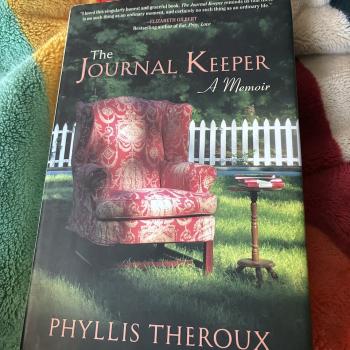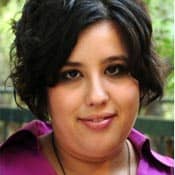Three very different deaths anchor the Chukatt portion: the deaths of Miriam and Aaron (Moses' sister and brother) and the ritual burning of the red heifer.
Chukatt opens with the ritual of sprinkling the red heifer's ashes. The ashes must come from a flawless, red, female cow. Her ashes are sprinkled on a person made impure by contact with a dead body, whom would otherwise be prohibited from bringing sacrifices at the holy Tent of Meeting. Through the death of the red heifer, the impure is rendered pure; however, the priest who handles the ashes is rendered impure. It is as if purity is transferred through this perfect cow, killed and burned for us (Num. 19:1-10).
The burning of the red heifer is a chuk, a law with no apparent or discernable purpose. Even King Solomon, known for his wisdom, could not discern the purpose of sprinkling her ashes. The Midrash quotes King Solomon saying: "I have labored to understand the word of God and have understood it all, except the ritual of the red-brown cow" (Numbers Rabbah 19:3). The strangeness of this ritual gives voice to the strangeness with which we experience the death of a human and of a cow.
Death has been a constant presence in the desert—plague after plague, punishment after punishment; death after the golden calf, death after the sin of the spies, death after Korach's rebellion, and the death of the Wood Gatherer. Finally, here we stop to reflect on death; on the occasions of Aaron's and Miriam's deaths we mourn those who perished in the desert. Aaron dies after Miriam. His death is expressly mourned in the text. His is an orderly death.
Moses did as God commanded, and they ascended Mount Hor before the eyes of the entire assembly. Moses stripped Aaron's garments from him and dressed Elazar his son in them; then Aaron died there on the top of the mountain, and Moses and Elazar descended from the Mountain. When the entire assembled saw that Aaron had perished; they wept for Aaron for thirty days, the entire house of Israel (Num. 20:27-29).
There is no mention of an afterlife here or anywhere else in the Torah's text; Aaron's eternal life resides in the everlasting priesthood. That which defined him, his priestly garments, are removed from his body and put on his eldest son. There is an orderly transmission from one generation to the next. Aaron dies seeing his son standing in his place. There is surely great peace in that.
However, Miriam's death receives only a single sentence in the text. After the people arrive in the Zin Desert, we are told that "Miriam died there and she was buried there" (Num. 20:1). The text is silent as to who will carry her memory forward; does she have children who will wear her garments in her stead?
In the two stories that expressly speak of Miriam, she is seeking power for herself. At the splitting of the sea, she acts in a manner parallel to Moses. Miriam sings with the women as Moses sings with the men (Ex. 15:21). Later, Miriam is exiled with leprosy because she compares herself to Moses once again, claiming for herself the title of a prophet like Moses (Num. 12:3). Did Miriam, the woman who believed herself to be the equal of a man, die alone?
The Midrash responds to the problem of Miriam's lonely death by writing for her a family. She is a mother, married to Caleb, the good spy who did not speak negatively of Israel, with a sister-wife, Batyah, Pharaoh's daughter who saved baby Moses from the Nile (Steinmetz, "A Portrait of Miriam in Rabbinic Midrash"). In providing Miriam with an extraordinary family, the Midrash gives Miriam a peaceful resting place in our tradition, as a mother and a wife in Israel.
However, in the Torah, there is no peaceful rest for Miriam. She is forgotten by the text and the people, but mourned by God. After her death, the Israelites' water well dries up. When her life stops, so does the source of life. From the juxtaposition of Miriam's death and the drying of the well, the Talmud learns that this well existed because of Miriam's merits; it was her well (Tractite Sukkah 3:11). To restart it, God commands Moses and Aaron to speak to Miriam's well, but instead they hit the well and are punished with an early death in the desert.
Does the violence forced upon her well echo the violence forced upon her identity? Was Miriam required to toe the line of womanhood, even as she prophesied for a God who has no gender? Are Aaron and Moses punished for causing violence to Miriam's well and to her identity? Is God saying to Aaron and Moses, "She died in the desert and you dare to think that you will not perish here too? You are no greater then she was."
Her end was not peaceful, but neither was it quiet. Today, I return to Miriam's proverbial ashes to exhume a feminist voice in our tradition even when, like the purpose of the red heifer, it is not discernable or apparent.
6/28/2011 4:00:00 AM





